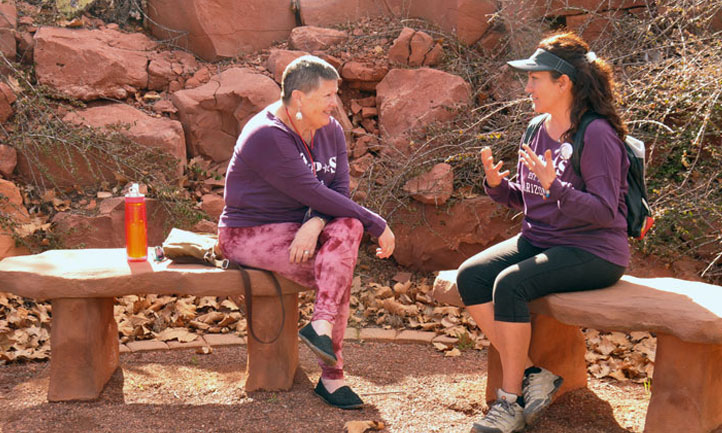Beyond the Burst of Support
Author: Shauna Springer
The period just after traumatic loss is incredibly painful, overwhelming and tumultuous. In the wake of a tragedy, many survivors experience the secondary impact of loss when those they thought would always stand at their side are not as supportive as they’d hoped, or not supportive at all. So often, we’ve heard that grief “changes our address book,” but the warning doesn’t necessarily make it easy to face.

It’s common for friends and family to reach out in a burst of support in a time of crisis. But then, things go back to “normal” for them. As one survivor described it, “I think it was about three month point when the cards stopped coming.” Others go back to focusing on themselves or something or someone else. Unfortunately, attention spans don’t usually last much longer than news cycles.
In fact, this “burst of support effect” is almost universally seen across life-changing events. When there’s a health crisis, like a cancer diagnosis, a debilitating car accident or even a happy event like the birth of a baby or a wedding, friends and neighbors’ support usually is limited to a period of a few weeks or months. In this way, we can see that the burst of support effect is a typical and socially-normed way to respond to the needs of others. It’s, therefore, important to realize that what may feel like a withdrawal of support isn’t personal and doesn’t mean we are loved any less within our social circles.
If a close friend has the wisdom to say, “I can’t imagine what you are going through,” take that person at his or her word. Those who haven’t walked this path generally will have great difficulty understanding what it feels like to be thrust into grief. They don’t really understand what to say or how to support because the grief journey is outside the limits of their own lived experience.
While we can do our best to remember we’re loved, the burst of support effect is still problematic when the most urgent needs of survivors come well after the loss. Immediately following a loss, surviving loved ones may be in a state of shock – experiencing feelings of disorientation and numbness. Once the initial shock wears off, waves of grief may hit, inflicting sharp and sudden pain. Just as the burst of support effect is nearly universal, the delayed impact of trauma is common.
Fortunately, when our address book changes, we also can find support from unexpected places. There is a group that doesn’t conform to the burst of support effect, one made up of peers who have traveled the same journey. Other survivors of loss understand at a deep level that grief support is an ongoing, lifelong need. Surviving loved ones know that new loss survivors don’t just need limited-time grief therapy, but also the transformation of identity and relationship structures that come from gaining a new set of safe, stable and supportive attachments. In order to heal our hearts, we can choose to grow our address book. And at TAPS, our address book is overflowing with the love and support of others to companion us on the grief journey.
Grief won’t always feel as acutely painful as it does initially, but whenever you need our support, we are here to walk with you throughout your journey. We send cards on angelversaries, invite you to join us for a wide array of events and social gatherings throughout the country every year and offer access to 24/7 support through our TAPS National Military Survivor Helpline. TAPS also organizes ongoing support groups at locations all across the country to provide consistent, locally-available emotional support networks for survivors. We provide casework assistance immediately and years after a loss, when services and benefits may be relevant. This magazine, which is full of stories of hope and recovery and information about resources, is also published every quarter as another way that we offer continuous contact and support for the ongoing journey of grief.
Survivors are the heart of the TAPS family. Our lived experience has directly informed our best practice approach to supporting all those who have suffered a loss in the military. Being able to walk with others on their grief journey allows for reciprocal healing. TAPS Peer Mentors and dedicated TAPS staff are able to find purpose and make meaning in their own loss by helping others find healing.
So, if your community has stopped showing up for you, know that there is a community that will always offer support, and we can find purpose and comfort in being able to walk with you.
From the pen of…
Shauna Springer, Ph.D., is the Senior Advisor of Suicide Prevention for TAPS. She has particular expertise in attachment processes, trauma recovery, innovative suicide prevention approaches, relationship counseling, peer support program development and Veterans’ issues, including post-discharge adjustment and strategies for engaging Veterans in behavioral health care.
